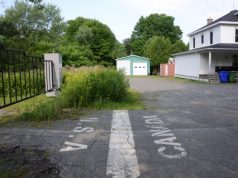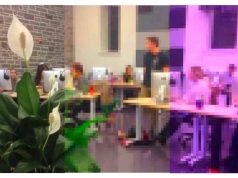Of the many analogies serving to unpack the massive challenge that is Climate Change, The Zombie Apocalypse and The Mid-Life Smoker are two of the most poignant.
The Zombie Apocalypse theory poses that the huge surge in movies and TV shows featuring relentless pursuit by the undead are a proxy narrative for the conversation around Climate Change we are unwilling to have in the West. Unable to address the particulars of what a three degree Celsius increase in temperature would mean for humanity, and thus unable to consider what a 1/2 billion people with homes would be under water would be like, we turn to science fiction and horror to satiate that part of our brains that won’t be shut down.
The Mid-Life Smoker theory is an analogy for our unwillingness to make the behavioural changes required to stabilize global temperatures in a manner that will prevent something approximating The Zombie Apocalypse. A two-degree increase by 2100 is what the experts are calling for. Pre-Paris, we are nowhere on track for that. We are smoking a pack a day, and how long we can continue, before gradually we give our selves Zombie Cancer is an unknown. The odds increase the longer we keep smoking. We know it’s bad for us, but we just can’t stop.
The articles in this edition seek to connect artistic practice in the theatre to climate change in tangible ways. Heidi Taylor provides arts organizations (well, any organization really) with a blueprint to make their operations more sustainable, Amelia Sargisson unpacks howPorte Parole’s The Watershed mirrors and engages with our national conversation surrounding carbon pollution and the environment, and Eric Rhys Miller connects with a younger generation of Vancouver Fringe artists to engage with Climate Change.
Here’s to a successful Paris Climate Conference with new ambitious targets that will leave humanity with hope the future won’t dissolve into a horror film.
Adrienne Wong & Michael Wheeler
Co-Editors: #CdnCult V6E4









